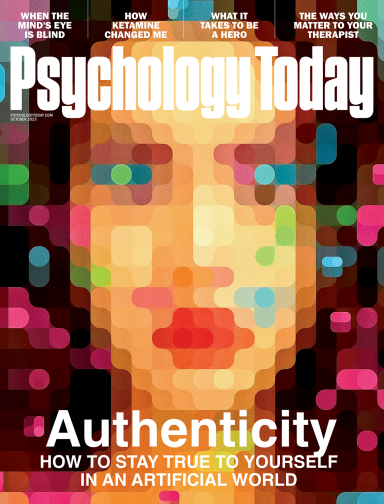Spirituality
What Is Secular Humanism?
A positive, ethical, non-religious orientation.
Posted February 12, 2020 Reviewed by Devon Frye
Religion has framed and shaped much of human culture. The belief that there are supernatural forces or powerful deities pervading nature, or the proposition that a supreme Creator God rules the universe, watches our every move, reads our every thought, demands supplication, and sends us to heaven or hell after we die—such conceptions have determined many people’s world-views and life-stances for millennia.
In the past, humans turned to such religious ideas as they attempted to account for why they existed and how everything came to be. When they experienced eclipses, earthquakes, or the aurora borealis, they came up with explanations that weren’t grounded in scientific fact, but in what they were able to imagine. When they experienced pain or disease, they sought remedies provided by purveyors of magic. When they were worried or scared, they may have wished and hoped that some invisible force or being would protect them. And when those in power needed justification for their actions, they oftentimes insisted that they were carrying out the will or commandments of some god.
Such religious beliefs have undoubtedly provided much comfort in the face of suffering, hope during trying times, and motivation to do good, follow rules, and be a charitable member of one’s community.
But fewer humans are buying into them anymore. More and more people are losing their faith in religious beliefs and walking away from religious institutions. There are now hundreds of millions of people living secular lives as atheists or agnostics. And for the first time in history, there are now many nations where non-believers actually outnumber believers.
So, what then replaces the surety and security of religious belief? What values, belief system, worldview, or life-stance can people embrace once they no longer believe in gods or spirits? The best alternative, in my opinion, for those who no longer subscribe to religious myths—and who seek a meaningful outlook and positive orientation to life—is Secular Humanism.
What’s that?
Secular Humanism begins with denial or doubt concerning the existence of anything supernatural—including God—but then goes well beyond that secular stance by positively affirming and valuing the potential of human beings to be kind, enact justice, solve problems, and make the world a better, safer, greener, and more humane place.
Secular Humanism rests firmly upon the recognition that humanity’s ability to be cruel, selfish, deceitful, and violent is far outweighed by our more pervasive and dominant capacities to be humane, altruistic, cooperative, sensible, fair, and peaceful.
A Secular Humanist is someone who does not believe in the otherworldly tenets of religion, but does believe in the many noble and righteous things of this world, such as cooperation, reason, education, science, humor, inquiry, democracy, compassion, tolerance, imagination, open debate, human rights—and then some.
Rather than put faith in the invisible, unfathomable, and improbable, Secular Humanists put their faith in the visible, discernible, testable, and real: people’s ingenuity, stamina, talent, kindness, and thirst for the ethical.
Rather than rely on wishful thinking or prayer to cure disease or solve social problems, we look to experimentation, the scientific method, reliable medicine, sound social policy, and democratic ideals.
Secular Humanism asserts that empiricism, evidence-based decision making, and ethically-minded scientific research are the best tools we have for fighting disease, diminishing crime, increasing communication, supporting democracy, and easing suffering.
Secular Humanism frames morality as not causing unnecessary pain, harm, or suffering to humans and other animals; easing or relieving the pain or suffering of humans and other animals; comforting those who are vulnerable or weak; working to increase health, happiness, and well-being in our families, communities, and society at large; fighting for fairness and justice; being empathetic and compassionate; being honest, conscientious, and caring; treating people the way in which we ourselves would want to be treated.
Secular Humanists believe that this is the only life we will ever have and that only we can create meaning for ourselves and our limited lives; these truths do not depress or worry but inspire and comfort.
Secular Humanists accept existential mystery as just that, existential mystery. We may never know why we are here, where it all comes from, how time and space can exist, or why anything ever exists at all. These things may be insoluble. So rather than obsess over such conundrums, we focus on what we can know: how to be a good friend, how to ease the suffering of others, how to protect nature, how to safeguard human rights, and so forth.
No, Secular Humanism does not promise eternal life in the clouds. It cannot magically cure cancer. It does not provide a ready-made set of do’s and don’ts for living that one can mindlessly obey.
But what it does offer is far more important: a heavy dose of reality, tinged with hope based on experience and love.














